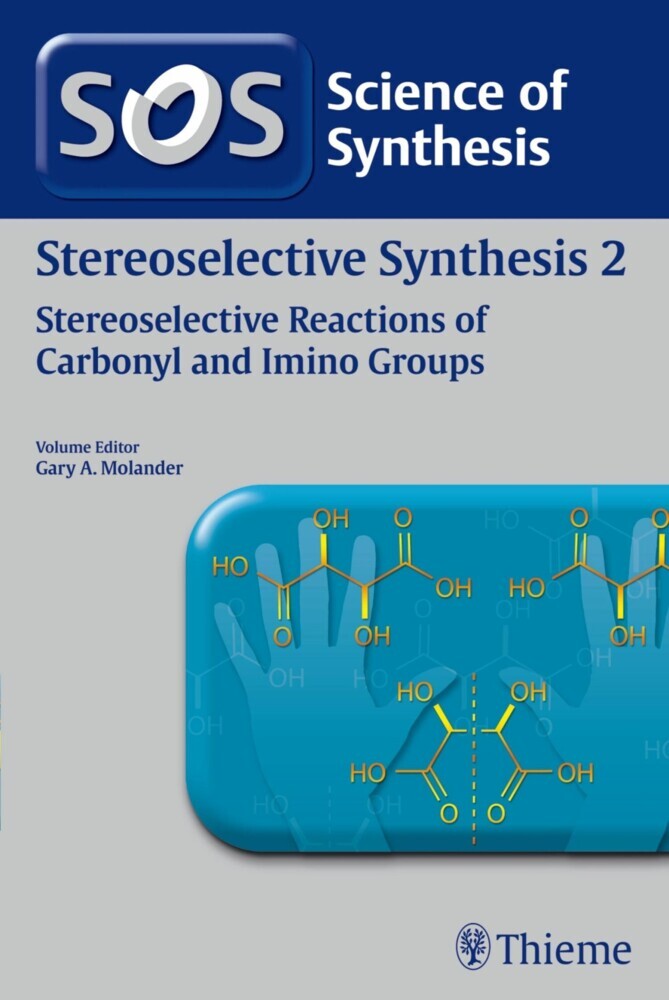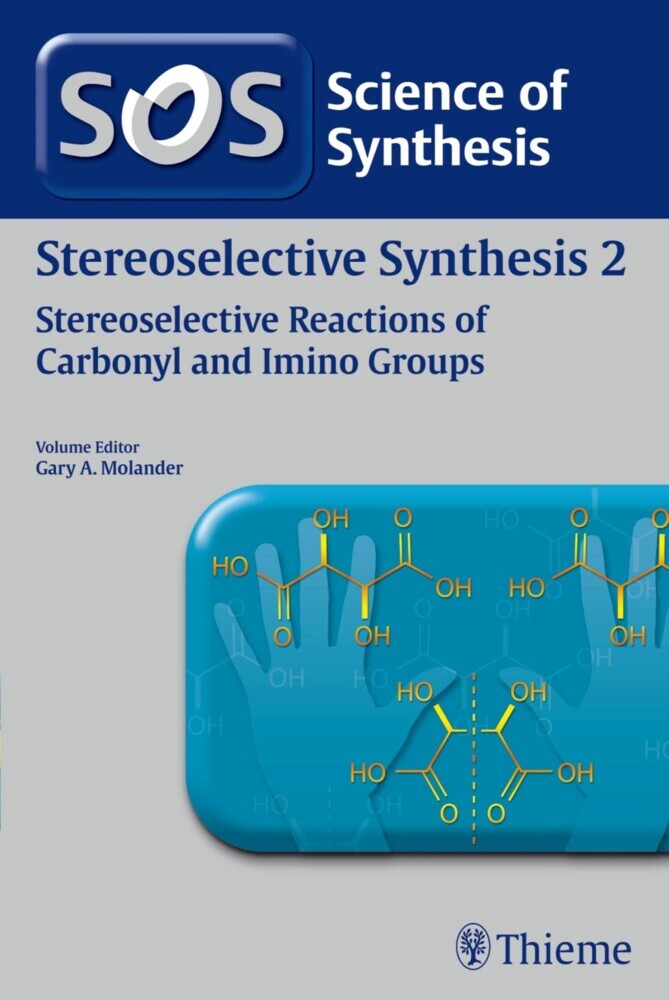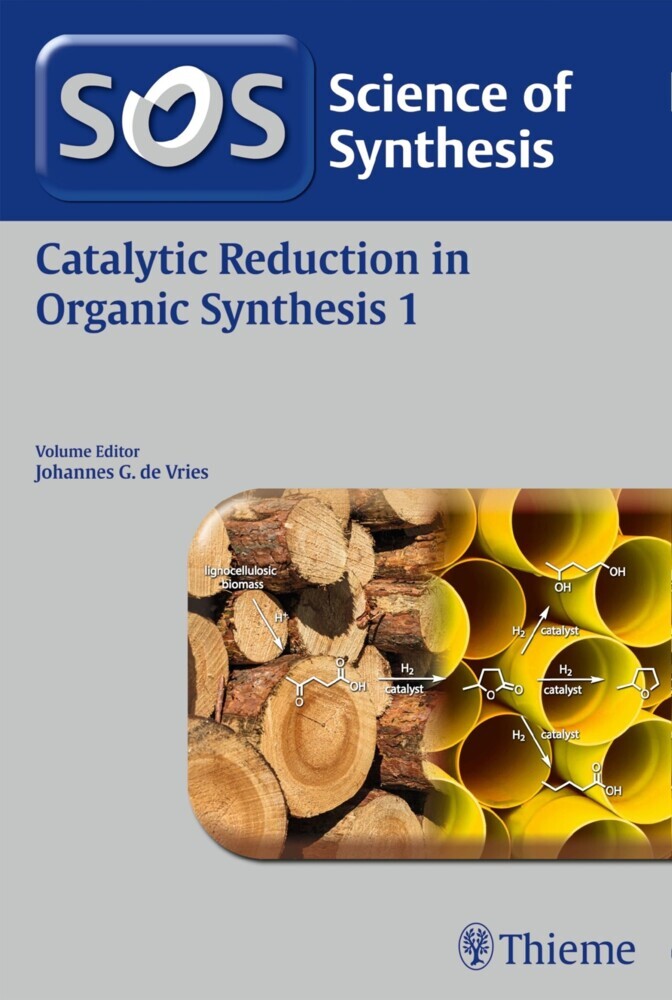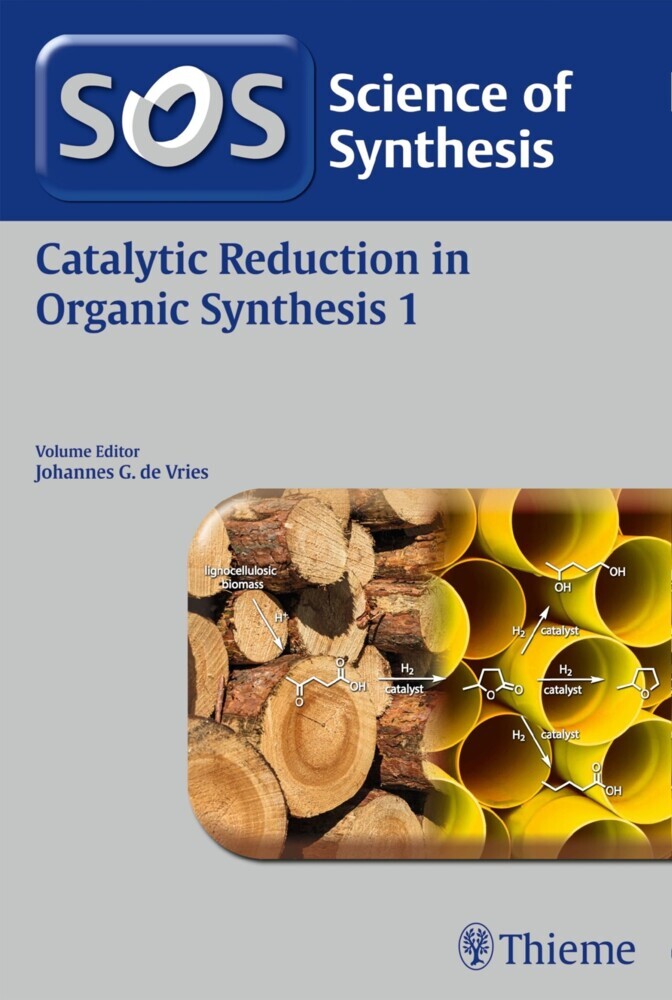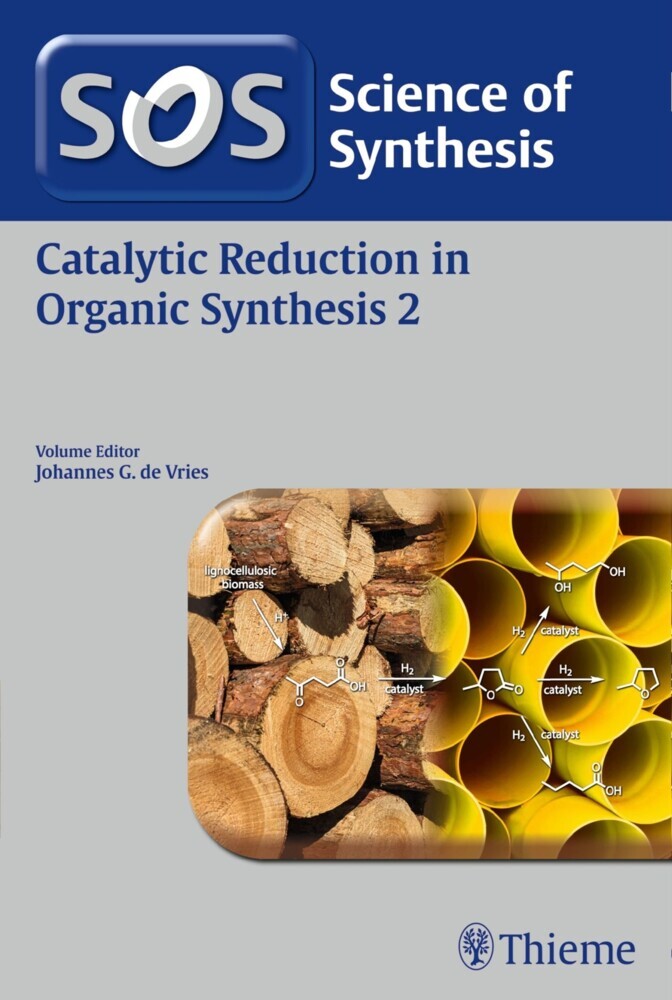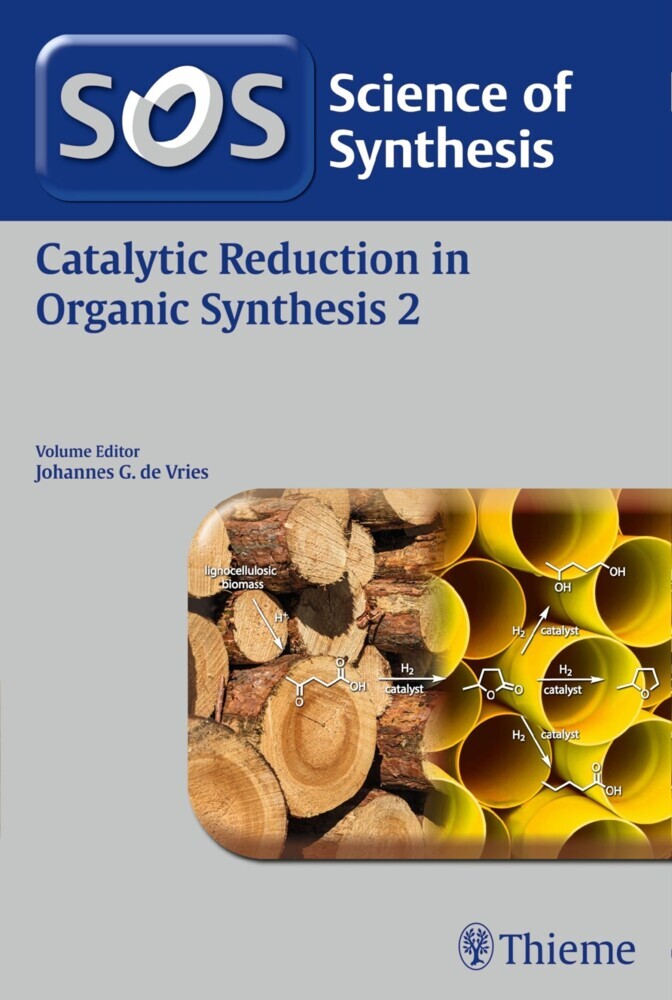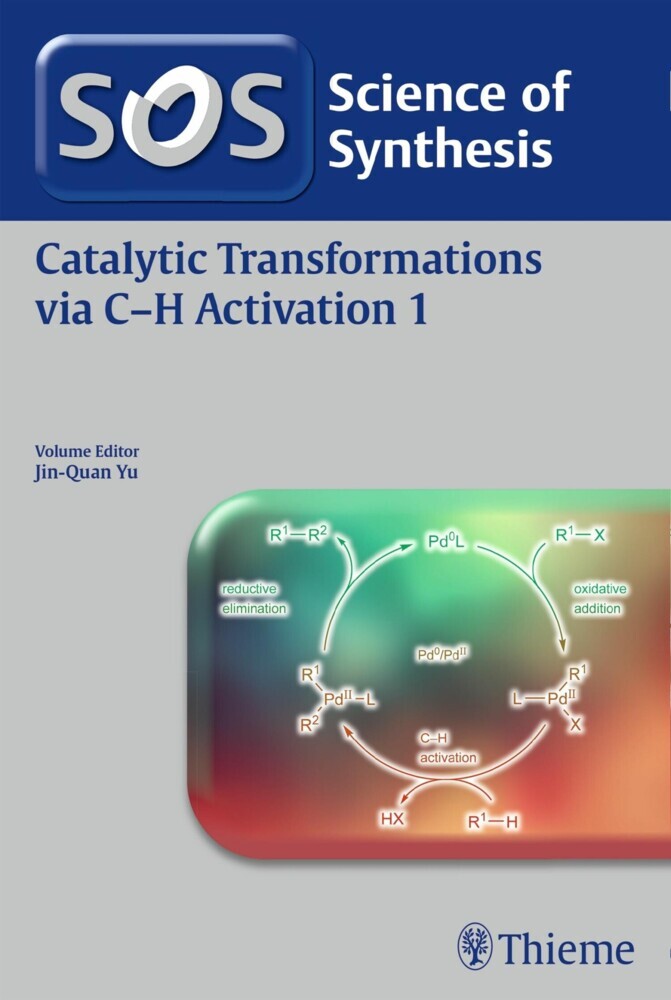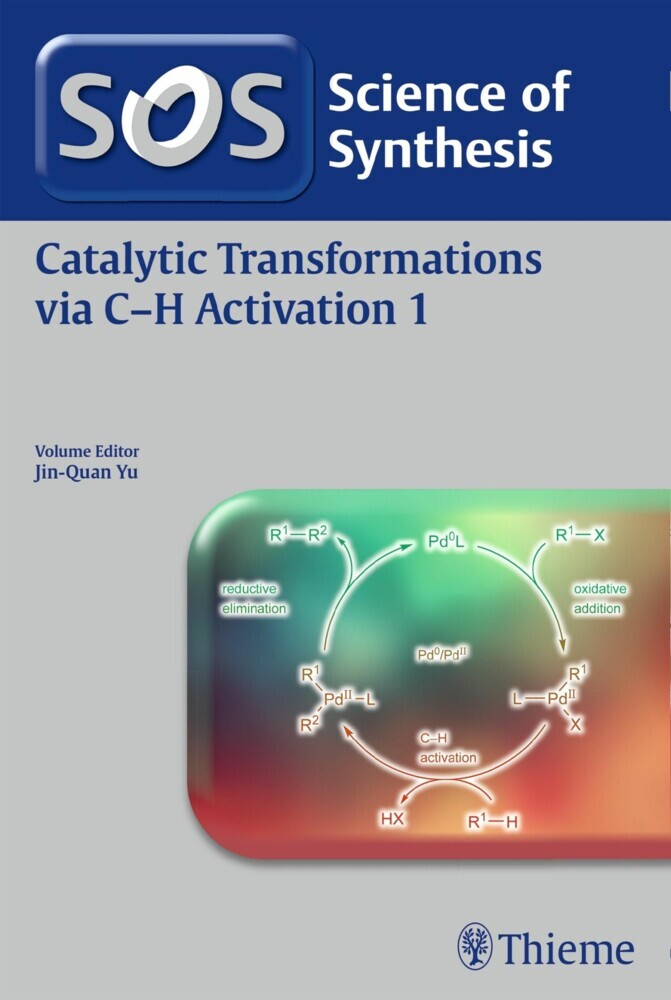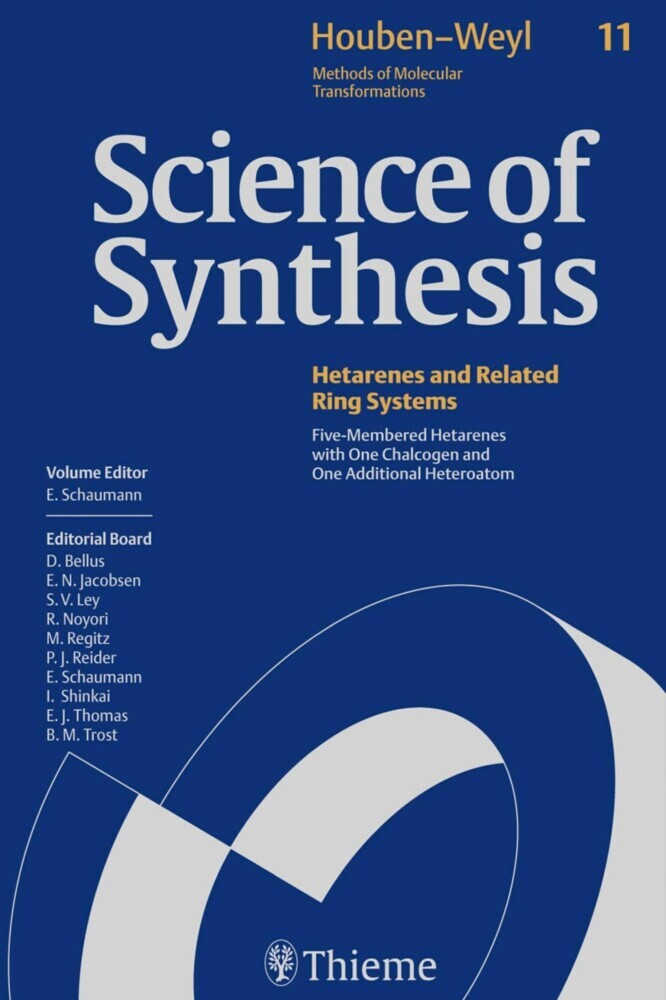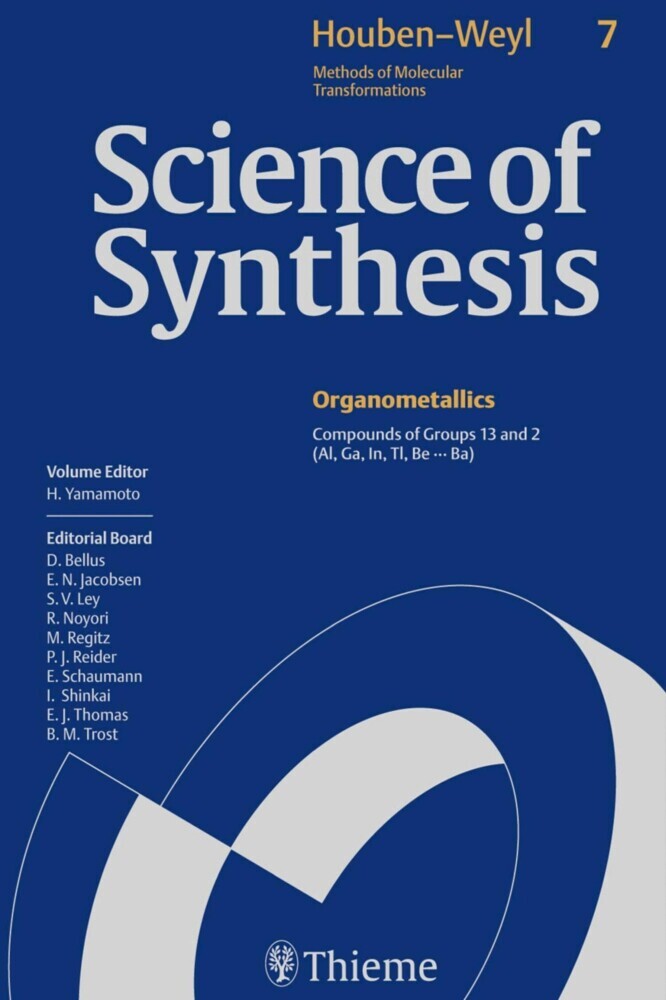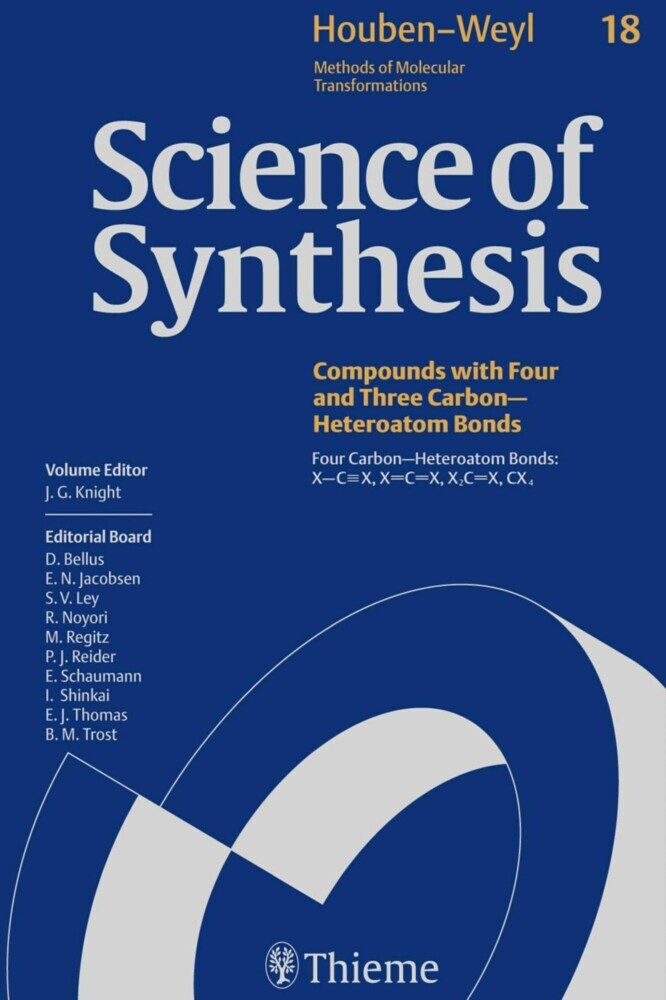Science of Synthesis: Stereoselective Synthesis Vol. 2
Stereoselective Reactions of Carbonyl and Imino Groups
Science of Synthesis: Stereoselective Synthesis Vol. 2
Stereoselective Reactions of Carbonyl and Imino Groups
Carbonyl and imino groups are two of the most integral functional groups employed in organic synthesis. Specific topics discussed: reduction, alkylation, alkenylation, and arylation of these groups, as well as asymmetric aldol, Mannich, and Morita-Bayliss-Hillman reactions.
This volume is part of a 3-volume set: Science of Synthesis Stereoselective Synthesis Workbench Edition
Further information about Stereoselective Synthesis (including sample pages and the table of contents)
1;Science of Synthesis: Stereoselective Synthesis 2 - Stereoselective Reactions of Carbonyl and Imino Groups;1 1.1;Organizational Structure of Science of Synthesis;2 1.2;Science of Synthesis Reference Library;3 1.3;Title page;5 1.4;Imprint;7 1.5;Preface;8 1.6;Volume Editors' Preface;10 1.7;Stereoselective Synthesis Volumes;12 1.8;Abstracts;14 1.9;Overview;24 1.10;Table of Contents;26 1.11;Introduction;44 1.12;2.1 Reduction of Carbonyl Groups: Hydrogenation;52 1.12.1;2.1.1 Diastereoselective Hydrogenation of Carbonyl Groups;54 1.12.1.1;2.1.1.1 Diastereoselection Based on Steric Hindrance;54 1.12.1.2;2.1.1.2 Diastereoselection through Chelate Intermediates;57 1.12.2;2.1.2 Enantioselective Hydrogenation of Carbonyl Groups;59 1.12.2.1;2.1.2.1 Hydrogenation of Functionalized Ketones;59 1.12.2.1.1;2.1.2.1.1 Hydrogenation of ß-Keto Esters;59 1.12.2.1.2;2.1.2.1.2 Hydrogenation of a-Substituted ß-Keto Esters: Dynamic Kinetic Resolution;67 1.12.2.1.3;2.1.2.1.3 Hydrogenation of a-Keto Esters;69 1.12.2.1.4;2.1.2.1.4 Hydrogenation of Miscellaneous Substrates;71 1.12.2.2;2.1.2.2 Hydrogenation of Simple Ketones;73 1.12.2.2.1;2.1.2.2.1 Hydrogenation of Aromatic Ketones;73 1.12.2.2.2;2.1.2.2.2 Hydrogenation of Unsaturated Ketones (Alkenyl Alkyl Ketones);89 1.12.2.2.3;2.1.2.2.3 Hydrogenation of Alkyl Ketones;92 1.12.2.2.4;2.1.2.2.4 Hydrogenation of Acylsilanes;95 1.13;2.2 Reduction of Carbonyl Groups: Transfer Hydrogenation, Hydrosilylation, Catalytic Hydroboration, and Reduction with Borohydrides, Aluminum Hydrides, or Boranes;102 1.13.1;2.2.1 Transfer Hydrogenation;102 1.13.1.1;2.2.1.1 The Meerwein--Ponndorf--Verley Reduction of Ketones;103 1.13.1.1.1;2.2.1.1.1 Diastereoselective Reduction;103 1.13.1.1.2;2.2.1.1.2 Enantioselective Reduction;108 1.13.1.2;2.2.1.2 Asymmetric Transfer Hydrogenation of Ketones Catalyzed by Group 8 and 9 Metal Complexes;108 1.13.1.2.1;2.2.1.2.1 Reduction in Organic Solvents;108 1.13.1.2.2;2.2.1.2.2 Reduction in Water;121 1.13.1.2.3;2.2.1.2.3 Immobilized Catalysts;124 1.13.1.2.4;2.2.1.2.4 Biomimetic Reduction;125 1.13.2;2.2.2 Hydrosilylation of Ketones;127 1.13.2.1;2.2.2.1 Hydrosilylation Catalyzed by Rhodium Complexes;128 1.13.2.2;2.2.2.2 Titanium Hydride Catalyzed Hydrosilylation;132 1.13.2.3;2.2.2.3 Copper Hydride Catalyzed Hydrosilylation;133 1.13.2.4;2.2.2.4 Organocatalytic Hydrosilylation;136 1.13.2.4.1;2.2.2.4.1 Diastereoselective Reduction;136 1.13.2.4.2;2.2.2.4.2 Enantioselective Reduction;138 1.13.3;2.2.3 Asymmetric Catalytic Hydroboration;139 1.13.3.1;2.2.3.1 Hydroboration of Ketones Catalyzed by Oxazaborolidines;139 1.13.3.2;2.2.3.2 Hydroboration of Functionalized Ketones Catalyzed by Oxazaborolidines;145 1.13.3.3;2.2.3.3 Hydroboration of Ketones Catalyzed by (Aminoalkoxy)boranes and Aminoborates;149 1.13.4;2.2.4 Reduction with Borohydrides, Aluminum Hydrides, and Boranes;153 1.13.4.1;2.2.4.1 Diastereoselective Reduction of Ketones;153 1.13.4.2;2.2.4.2 Enantioselective Reduction of Aldehydes and Ketones;157 1.14;2.3 Enzymatic Reduction of Carbonyl Groups;176 1.14.1;2.3.1 Alcohol Dehydrogenases (Ketoreductases): The Enzymes for Carbonyl Reduction;177 1.14.1.1;2.3.1.1 Reduction of Ketones Mediated by Wild-Type Whole Cells, Engineered Whole Cells, Enzyme Preparations, and Immobilized Enzymes;178 1.14.1.1.1;2.3.1.1.1 Whole-Cell Reductions with Wild-Type Organisms;179 1.14.1.1.2;2.3.1.1.2 Enzymes from Genetically Engineered Organisms;183 1.14.1.1.3;2.3.1.1.3 Comparison of Enzyme Formulations;184 1.14.1.1.4;2.3.1.1.4 General Aspects of Working with Whole Cells and Enzyme Preparations;185 1.14.1.2;2.3.1.2 Availability of Alcohol Dehydrogenases;186 1.14.1.3;2.3.1.3 Selection of an Alcohol Dehydrogenase;186 1.14.2;2.3.2 Selection of Reaction Conditions;187 1.14.2.1;2.3.2.1 Cofactor Regeneration Systems;187 1.14.2.1.1;2.3.2.1.1 Cofactor Regeneration by Glucose Dehydrogenase;187 1.14.2.1.2;2.3.2.1.2 Cofactor Regeneration by Formate Dehydrogenase;189 1.14.2.1.3;2.3
Carreira, Erick M.
Molander, Gary A.
| ISBN | 9783131789419 |
|---|---|
| Artikelnummer | 9783131789419 |
| Medientyp | E-Book - PDF |
| Copyrightjahr | 2014 |
| Verlag | Georg Thieme Verlag KG |
| Umfang | 1061 Seiten |
| Sprache | Englisch |
| Kopierschutz | Digitales Wasserzeichen |

